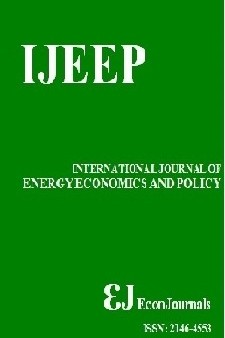Impacts of Oil Foreign Direct Investment on Environment and Poverty Level in Niger Delta Oil Producing Region: A Structural Equation Modeling Approach
Impacts of Oil Foreign Direct Investment on Environment and Poverty Level in Niger Delta Oil Producing Region: A Structural Equation Modeling Approach
Foreign direct investment, environmental degradation, poverty, structural equation modeling,
- Başlangıç: 2011
- Yayıncı: İlhan ÖZTÜRK
Andrea CERVONE, Ezio SANTİNİ, Sabrina TEODORİ, Donatella Zaccagnini ROMİTO
Oil Price Pass-Through into Domestic Inflation: The Case of Iran
Abbas Ali ABOUNOORİ, Rafik NAZARİAN, Ashkan AMİRİ
Bilal MEHMOOD, Syed Hassan RAZA, Mahwish RANA, Huma SOHAİB, Muhammad Azhar KHAN
Ljerka CEROVİĆ, Dario MARADİN, Saša ČEGAR
The Nexus between Electricity Consumption and Economic Growth: New Insights from Meta-Analysis
Jamal BOUOIYOUR, Refk SELMI, İlhan OZTURK
U.S. Electrical System Reliability: Deregulated Retail Choice States’ Evidence and Market Modeling
Emmanuel ANORUO, William R. DİPİETRO
Economic Evaluation of Climate Protection Measures in Germany
